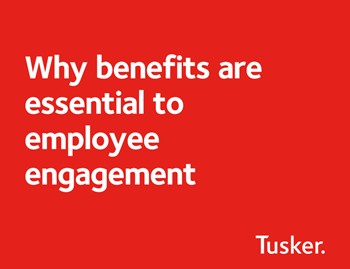In recent years, the benefits and perks companies offer their employees alongside their paychecks have become more important. A survey conducted by corporate gift supplier Adler Business Gifts has highlighted just how much employees value these additions.
Employees now rank perks and benefits of their job on par with their basic salary. Two-thirds (66%) say their company benefits are either as important or more important to them than their base-rate pay.
It’s easy to understand why this is the case given that company benefits, such as pensions and healthcare, can greatly enhance an individual’s financial stability and mental and physical wellbeing. Offering a strong benefits package can help companies substantially improve their staff retention with 43% of employees saying they’d leave their current place of work if they weren’t given benefits.
Adler’s survey has uncovered the most in-demand workplace perks that companies should be offering staff if they want to meet employee expectations.
1. Flexible working hours
Flexible working hours have long been discussed by HR professionals as a way to improve staff satisfaction. Allowing staff a degree of control over their working hours and schedule can have numerous benefits. The ability to shape their own working day, rather than being obliged to work to a strict staffing schedule, allows employees to strike a good work-life balance. Being able to adjust hours can help employees balance the school run, exercise more, and socialize with friends. All these activities are important for health and wellbeing.
Half of employees (48%) say they want flexible working to be offered by all organizations and businesses. Flexitime doesn’t just benefit staff by allowing them to create a better work-life balance, it also allows them to feel more trusted. By allowing your staff to choose their own working hours, you’re showing them you trust them to manage their own time effectively, helping them to feel empowered in the workplace.
Flexible working doesn’t mean your staff can work whenever they like. You can set core hours they must be in the office and allow them to choose their start and end times between set times, for example, 7 am and 7 pm. Not all workplaces will be able to accommodate extensive flexible working, but some small degree of flexibility can go a long way when it comes to staff satisfaction, so try to incorporate this as much as you can.
2. Pension schemes
A good pension scheme can be a huge incentive for prospective job candidates and can help encourage existing staff to remain in post; 44% of people expect pensions to be offered by their employers.
In some countries, including the UK, employers are legally obliged to offer pension schemes to their staff, with the option to opt out should they decide they don’t want to pay into a pension pot.
Pension schemes offer financial stability and security to your employees, improving their mental and emotional wellbeing. If you don’t already have a pension scheme for your employees, look into getting one as soon as you can. If you do already offer this benefit to your staff, it’s worth shopping around to see if you could be offering them a better investment opportunity for their money.
3. Matching pension contributions
When it comes to pensions, simply providing a pension scheme for employees to pay into may not be enough. 34% of employees also expect their employers to be making equal contributions to their pension pot.
Most pension schemes have a range of options for employer contributions. If you really want your staff to feel appreciated, you should at least be matching their monthly contributions. Doing so means that your employees know you’re willing to invest in their future and care about their wellbeing.
4. Performance bonuses
People like to be recognized for a job well done. Performance-related bonuses are a good way to reward hard work and good results. Over one-third (34%) of staff say they want to receive performance bonuses when they’re doing well.
Consider building performance bonuses into your organization’s operations. If you have a regular employee review system, bonus assessment can be built into this. Performance bonuses can be tied to a range of criteria, making them achievable for all teams, including;
- Overall company targets
- Individual sales results
- Personal development goals
- Efficiency ratings
- And a whole host of other things
Bonuses don’t have to be restricted solely to your sales team, they’re relevant and appreciated by your wider departments too.
5. Long Service Awards
Long-standing employees are often some of the most valuable resources within our organizations. They are a font of knowledge, offer in-depth insight into your brand’s journey, and really get your message across to clients and customers. To keep loyal staff on side it’s important to reward their commitment.
Long service awards don’t have to be expensive or complex. Regular, annual anniversaries can be marked with a heartfelt card and perhaps a voucher. Significant anniversaries at regular intervals should be marked with a larger gift, perhaps a bonus or something similar. Increasing the value of long service awards in line with length of service gives employees incentives to stay with your company and helps make them feel more appreciated. 28% said they wanted long service awards to be offered.
Introducing the perks and benefits described above at your organization should help attract the best potential candidates and encourage them to stay with you long term. Explore which it would be possible to achieve in your budget and build a forward plan for making them a reality for your staff.
Access the latest business knowledge in HR
Get Access



Comments
Join the conversation...